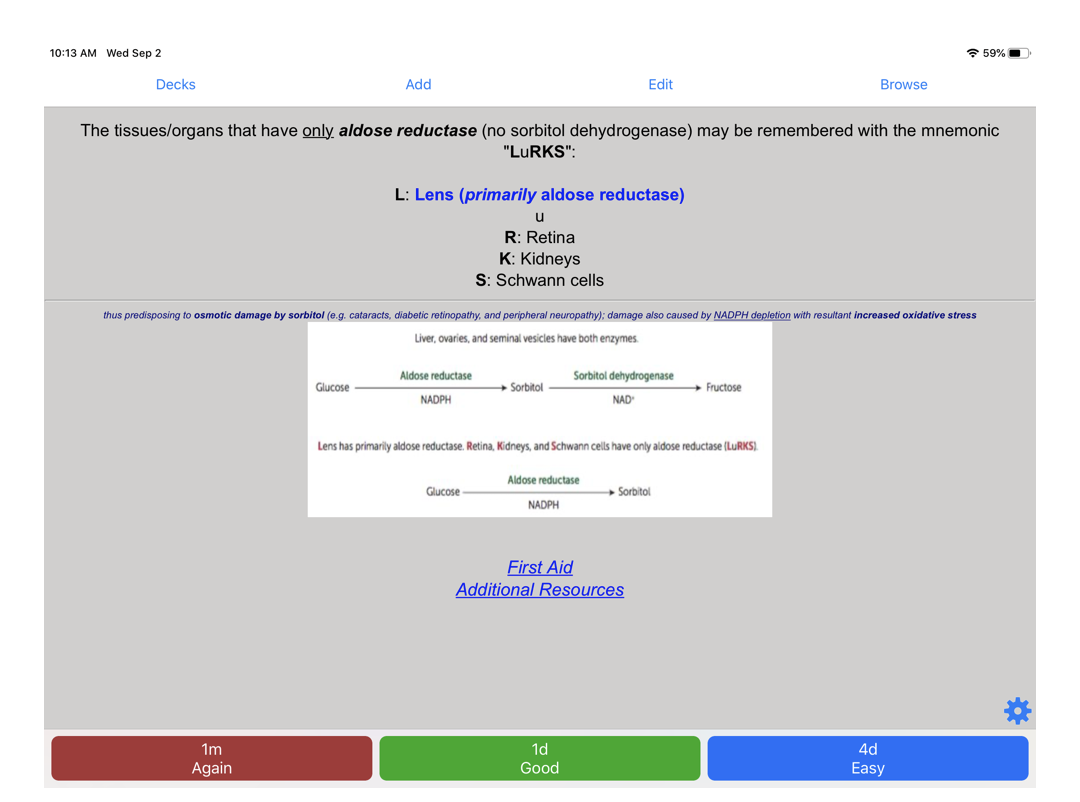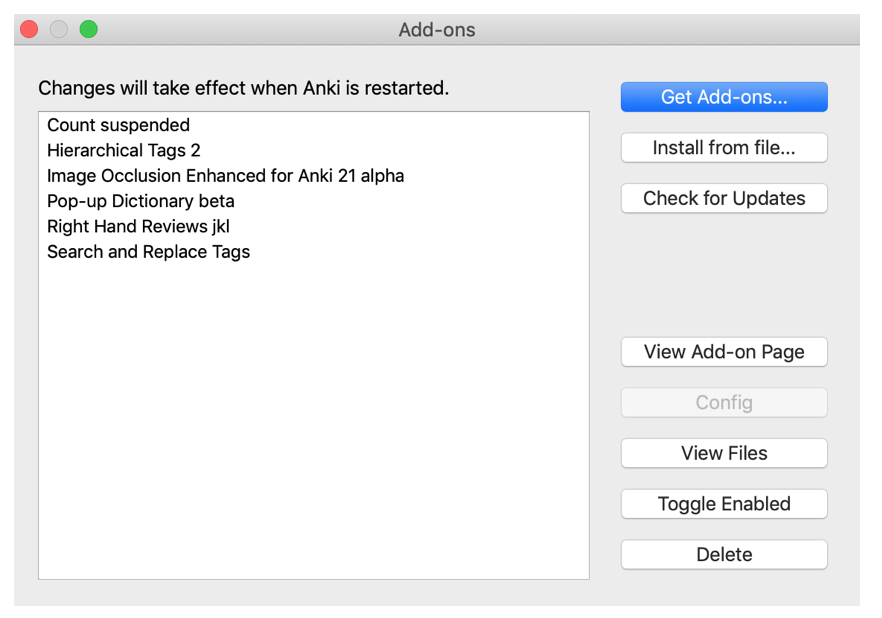%20(24).png?width=1080&name=Title_%20How%20to%20Study%20Efficiently%20for%20Hours%20On%20End%20(With%20the%20Help%20of%20a%20Tomato)%20(24).png) If you’re anything like me, you’ve probably never taken a strong liking to flashcards. Sure, I used the occasional Quizlet, but it always felt mundane and ineffective. Then I heard about an application called Anki. And let me tell you, it has completely changed the efficacy of my studying. So here’s my guide for how you can use Anki to study for the MCAT.
If you’re anything like me, you’ve probably never taken a strong liking to flashcards. Sure, I used the occasional Quizlet, but it always felt mundane and ineffective. Then I heard about an application called Anki. And let me tell you, it has completely changed the efficacy of my studying. So here’s my guide for how you can use Anki to study for the MCAT.
What is Anki?
Anki is a powerful flashcard application (mobile and desktop)*[1] that allows you to:
- Create your own curated decks of flashcards
- Schedule your learning and review of these cards using spaced repetition
The first point is really nothing new, as you can get the same features from Quizlet or paper flashcards. However, it’s the second point that makes Anki unique and particularly helpful for studying for the MCAT.
What is spaced repetition?
Spaced repetition is an evidence-based learning concept centered around creating variable time intervals between each card review. Cards that are difficult for you will be displayed much more frequently than cards you have mastered.
The developers of Anki thoroughly researched spaced repetition and integrated the technique into the application. When you learn a new card, you can indicate your mastery of the concept and Anki will automatically schedule its next review time for you (see below).

Typical flashcard applications are uncustomizable in terms of when you study the different cards in your deck. So every time you study with typical flashcards, you’re forced to review cards you already know well and do not spend enough time on the cards you’re still memorizing. With Anki, the time intervals gradually increase so that you’re no longer mindlessly reviewing cards that are already ingrained in your memory. Because of this, spaced repetition has been shown to be incredibly effective for studying.[2]
How to Maximize Anki for the MCAT
Here’s a guide for how to get started with Anki and tailor the app for your MCAT studying.
1. Curate your decks.
With Anki, you can either create your own flashcards (which inherently helps you learn the material) or use pre-made decks. There are tons of open-source decks that other people have made and shared on the internet (just look through Reddit). If you don’t have the time to make each card yourself, you can download other people’s decks and load them into your own Anki app.
2. Know your card types.
Unlike typical blank flashcards, you can customize the card type in Anki to best suit the topic at hand. The most common card types that I’d recommend for the MCAT are: basic, cloze deletion, and image occlusion.
3. Get the right add-ons.
The Anki interface is extremely barebones, but the power of it is that you can append “add-ons” to your application that will enhance all sorts of features for your studying. Everyone has different suggestions for what works best (see Essential Anki addons : Anki), but here’s a quick glance at what I have:

4. Review every single day!
Spaced repetition only works if you’re actually sticking to the schedule for card review. Sure, learning new cards on the first pass may take extra time, but as you continue to review and master a portion of the deck, you’ll start speeding through those cards. The great thing about Anki is that even short bursts of review - during your commute, when you have an awkward pocket of time, in the bathroom, etc - are all extremely effective. Unlike other forms of studying, you don’t necessarily need a large stretch of time to reach your flow state when you use Anki.
What kinds of concepts should I use Anki for?
By the time you get into medical school, the answer to that question is: basically everything. But for the MCAT, a test that is highly application-based, there are certain topics that work really well with Anki. Anything you deem memorization-heavy is fair game, but here’s where I put my focus:
Biology
- Amino acids (structure, abbreviations)
- Metabolism processes (glycolysis, krebs, glycogen pathways, etc.)
- Physiology concepts + terms
Chemistry/Physics
- Classification of certain molecules (strong acids, exceptions to rules, etc.)
- Organic chemistry reactions
- High-yield physics equations
Psych/Soc
- ALL the terms
I highly recommend giving Anki a try to see for yourself how effective it is for studying for the MCAT. Truth be told, you’ll probably end up using Anki in medical school anyways...so consider this your head start!
[1] Note: mobile/iPad versions cost $24.99; desktop version is free to download
[2] http://augmentingcognition.com/ltm.html
Comments